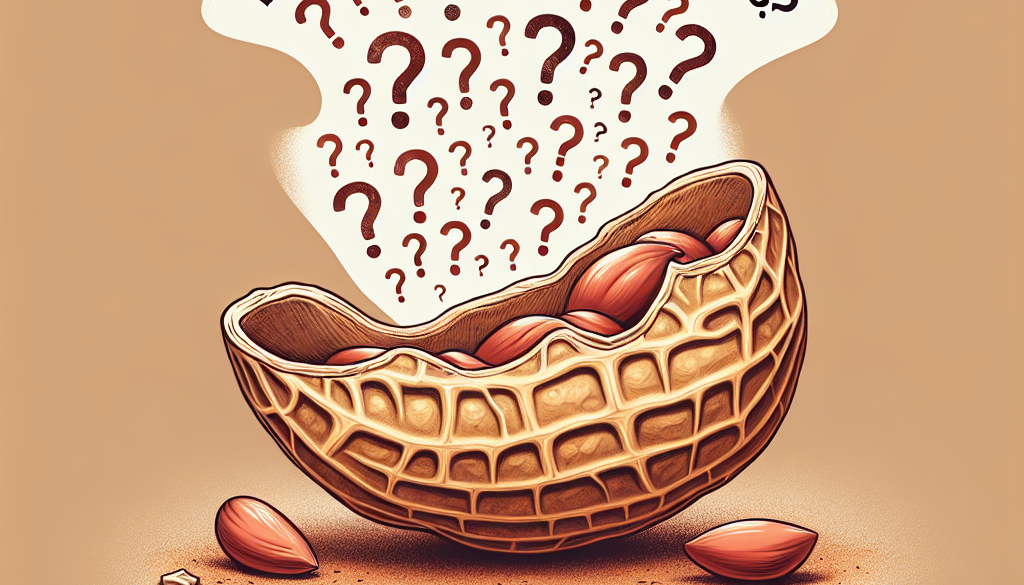Is It Safe to Eat Peanut Shells? Unpacking The Nutty Query
-
Table of Contents
- Is It Safe to Eat Peanut Shells? Unpacking the Nutty Query
- Understanding Peanut Shells
- Composition and Uses of Peanut Shells
- Can You Eat Peanut Shells?
- Potential Health Risks
- Are There Any Benefits?
- What Experts Say
- Case Studies and Research
- Alternatives to Peanut Shells
- Conclusion: To Shell or Not to Shell?
- Discover ETprotein’s Protein Products
Is It Safe to Eat Peanut Shells? Unpacking the Nutty Query

When it comes to snacking on peanuts, a common question that arises is whether it’s safe to eat the shells along with the nuts. While peanuts themselves are a nutritious snack, packed with protein, healthy fats, and fiber, their shells are not typically considered part of the edible snack. In this article, we’ll delve into the safety and nutritional aspects of consuming peanut shells, backed by research and expert opinions.
Understanding Peanut Shells
Peanut shells, the fibrous outer covering of peanuts, are often discarded after the nuts are harvested and processed. They are composed of cellulose, lignin, and other plant fibers that are tough and not easily digestible by humans. Before we can answer whether it’s safe to eat peanut shells, let’s explore their composition and potential uses.
Composition and Uses of Peanut Shells
Peanut shells are primarily used for agricultural and industrial purposes. They can be utilized as mulch, compost, or as a biofuel source. The high fiber content in peanut shells makes them suitable for these applications, but it also raises questions about their digestibility when consumed by humans.
Can You Eat Peanut Shells?
Technically, you can put peanut shells in your mouth and chew them, but whether you should is another matter. The human digestive system is not equipped to break down the high-fiber content of peanut shells effectively. This can lead to several health concerns.
Potential Health Risks
- Digestive Issues: Consuming peanut shells can lead to gastrointestinal discomfort, including bloating, gas, and constipation. The indigestible fibers can cause blockages or impaction in the digestive tract.
- Choking Hazard: Peanut shells can pose a choking risk, especially for children or individuals with swallowing difficulties.
- Contaminants: Shells may harbor pesticides, dirt, or other contaminants that are not intended for consumption.
Are There Any Benefits?
While peanut shells are high in fiber, the potential risks outweigh the benefits. The human body cannot extract significant nutritional value from the shells, and the discomfort associated with eating them is not worth the minimal fiber intake.
What Experts Say
Nutritionists and health experts generally advise against eating peanut shells. The consensus is that the risks involved do not justify consuming them as a source of nutrients. Instead, they recommend other high-fiber foods that are safer and more beneficial for health.
Case Studies and Research
There is limited research on the effects of eating peanut shells, as it is not a common practice. However, studies on the consumption of high-fiber indigestible plant materials suggest that they can lead to digestive issues and should be approached with caution.
Alternatives to Peanut Shells
If you’re looking for a high-fiber snack, consider these alternatives:
- Whole grains like oats, barley, and quinoa
- Fruits such as apples, berries, and pears
- Vegetables like carrots, broccoli, and leafy greens
- Legumes, including beans, lentils, and chickpeas
- Nuts and seeds (without the shell)
Conclusion: To Shell or Not to Shell?
In conclusion, while peanut shells are not toxic, they are not recommended for consumption due to the potential health risks and lack of nutritional benefits. It’s best to enjoy peanuts without their shells and seek other dietary sources of fiber that are safer and more digestible.
Discover ETprotein’s Protein Products
If you’re looking for a nutritious addition to your diet, consider ETprotein’s range of high-quality protein products. Their selection includes organic rice protein, clear rice protein, pea protein, and more, all designed to cater to various dietary needs and preferences. Whether you’re involved in sports nutrition, weight management, or simply seeking a healthy supplement, ETprotein has a protein solution for you.
About ETprotein:
ETprotein, a reputable protein Chinese factory manufacturer and supplier, is renowned for producing, stocking, exporting, and delivering the highest quality organic bulk vegan protein and plant proteins. They include Organic rice protein, clear rice protein, pea protein, clear pea protein, pumpkin seed protein, sunflower seed protein, mung bean protein, peanut protein etc. Their offerings, characterized by a neutral taste, non-GMO, allergen-free attributes, cater to a diverse range of industries. They serve nutraceutical, pharmaceutical, cosmeceutical, veterinary, as well as food and beverage finished product distributors, traders, and manufacturers across Europe, USA, Canada, Australia, Thailand, Japan, Korea, Brazil, and Chile, among others.
ETprotein specialization includes exporting and delivering tailor-made protein powder and finished nutritional supplements. Their extensive product range covers sectors like Food and Beverage, Sports Nutrition, Weight Management, Dietary Supplements, Health and Wellness Products, and Infant Formula, ensuring comprehensive solutions to meet all your protein needs.
As a trusted company by leading global food and beverage brands and Fortune 500 companies, ETprotein reinforces China’s reputation in the global arena. For more information or to sample their products, please contact them and email sales(at)ETprotein.com today.












